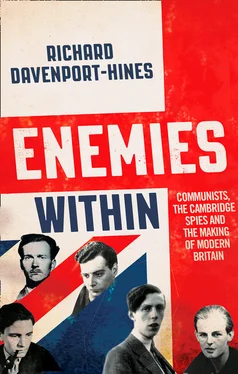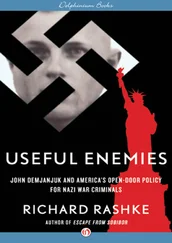Bystrolyotov was instructed to elicit the identity of ‘Charlie Scott’, who was being run under the codename of ARNO. To this end, he adopted the alias of a Hungarian count, Lajos József Perelly, and went to Budapest to learn his part. He introduced himself to ‘Scott’ in a Paris restaurant as a nobleman who had been ruined by the war and who performed services for OGPU in return for an income that enabled him to keep caste. He felt that he was more acceptable to ‘Scott’ posing as a Hungarian hireling than he would have been as a Russian or Ukrainian communist. After months of patience, ‘Perelly’ discovered that ‘Scott’ was staying in a particular Paris hotel, where his luggage was stamped with the monogram ‘EHO’.
The scene shifted from Paris to Geneva. When Slocombe depicted Geneva as Europe’s ‘most secretive city’, he was indulging in an old spy’s misdirection. It was hard to keep secrets there. The lifeless official verbiage and stiff protocol surrounding League of Nations sessions there encouraged men to unbend with confidential admissions and gossipy indiscretions when they went off duty in bars and brasseries. ‘A vast concourse of politicians … is bound to bring all the ragtag and bobtail of the earth sniffing at their heels,’ as Antrobus recorded. ‘All the paraphernalia of leakage on a grand scale there assembled … the place swarmed with spies and secret agents who, I imagine, got what they wanted handed to them on a plate.’ 14
Bystrolyotov @ Gallas @ Perelly arrived in Geneva for a League meeting in, it seems, July 1931. He deduced that ‘EHO’ would attend the League sessions, found that a man with those initials was staying at the Hôtel Beau-Rivage, spotted ‘Scott’ in the hotel bar and sat next to him there in silence. ‘Scott’ looked aghast on catching sight of ‘Perelly’ and realized that OGPU had broken his anonymity. Bystrolyotov intended to consolidate his advantage by visiting Oldham at home and asserting OGPU control over him, but when he called at Pembroke Gardens in September with false credentials identifying him as a Dresden banker, Lucy Oldham, looking tense, explained that her husband was away from home. The courteous foreigner invited her for lunch at the Ritz. Amid the restaurant’s gilt and mirrors she revealed that Oldham was undergoing an expensive cure for alcoholism in a sanatorium in Suffolk called Rendlesham Hall.
She besought ‘Count Perelly’ to visit Oldham at Rendlesham, and insisted that he take the spare bedroom in Pembroke Gardens. On the night before Oldham’s return home in October, Lucy Oldham rolled up the hem of her dress, spread her legs and begged the Count not to waste time. He obliged, and reported his performance to Moscow, where the codename of MADAM was bestowed on her. Bystrolyotov came to suspect that she had instigated her husband’s approach to the Russian embassy in Paris in 1929, and that she had encouraged the subsequent espionage as a way of perpetuating their Kensington prosperity.
OGPU in Moscow and the rezidentura in Berlin continued to assess Oldham as too dicey to risk agents receiving material direct from him in London. Instead, he was required to travel to Bonn, Ostend, Paris, Calais, Trouville, Madrid, Amsterdam and Switzerland for handovers of purloined documents. Throughout he insisted that he was only an intermediary, acting on behalf of the material’s true source. Oldham became such a valued source that Bystrolyotov was joined in London in 1932 by two well-tried agents. Joseph Leppin @ PEEP @ PEPIKA, a young Prague journalist who was then working under Boris Bazarov in the Berlin rezidentura , was fluent in French, English and German, had intellectual and artistic interests and was used by Bystrolyotov as the courier carrying Oldham’s product out of England on its journey to Moscow. Leppin was married for ‘operational purposes’ to a fellow Czech agent, Erica Weinstein (ERIKA), who collaborated with him on operations for Bystrolyotov. Bazarov (presenting himself as an Italian communist called da Vinci) and Theodore Maly also came to London to help in running Oldham. 15
Theodore Stephanovich Maly @ Theodore Mally @ Tivadar Mály @ Willy Broschart @ Paul Hardt @ Peters @ der Lange @ Mann is the most famous of the illegals. Born in 1894, the son of a provincial official in the Hungarian Ministry of Finance, he trained for priesthood in a seminary before his military mobilization at the age of twenty-one. He was an ensign-cadet by the time of his capture by tsarist forces in 1916. After gruelling train journeys, he was held in a prisoner-of-war camp at Astrakhan by the Caspian Sea, and later was transferred to the frontier town of Orenburg at the southern end of the Ural Mountains. ‘I lost my faith in God,’ he later said of his incarceration, ‘and when the revolution broke out I joined the Bolsheviks. I broke with my past completely. I was no longer a Hungarian, a priest, a Christian, even anyone’s son … I became a communist.’ Maly was a Chekist for ten years before joining INO in about 1931. He could pass as Austrian, Hungarian, German or Swiss. As described by his biographer William Duff, a special agent of the FBI who specialized in Soviet bloc espionage, Maly had ‘a tanned and strangely aesthetic face highlighted by deep-set but sad, almost childlike eyes’. For Elizabeth Poretsky, ‘“Teddy” … combined extreme sweetness with a great deal of determination, so that one felt at ease and protected in his company.’ OGPU admired Maly’s abilities, but felt perturbed by his outbursts of drunken and indiscreet remorse. They forced him to marry a woman whom he disliked because she kept him under watchful guard and kept him from binge-drinking. 16
During the Lausanne Conference of June–July 1932, at which the British, French and German governments discussed the suspension of German reparation payments, Oldham provided Bystrolyotov with coded messages, dispatches and even a British passport bearing the invented name of ‘Sir Robert Grenville’. The strain of duplicity drove Oldham into dipsomania. His department began investigating the disappearance of a codebook from a basement safe, in a part of the building where Oldham had been seen when he was on sick-leave. He was reported for using the Office’s ambassadorial side-entrance so as to avoid the doorkeepers who maintained security at the main doors. Other reports had him in a drunken stupor. On 30 September 1932 he was summoned to a disciplinary meeting, confronted with a list of transgressions, including unexplained visits to the cipher-room and losing confidential material which he claimed to have taken home. He was asked to resign without any gratuity. Like other members of his department, he had no pension rights.
Oldham did not admit to the illegals that he had been sacked. On 18 October, avid for more OGPU money, he flew with his wife from Croydon aerodrome to Berlin for a rendezvous with ‘Perelly’. During their meeting he was so helplessly drunk that he could hardly move or speak, and vomited. MADAM subsequently revealed to her partner in adultery, ‘Perelly’, that Oldham had been fired from his job. She added that she was leaving him, would sell the house and go to work in a French resort either as a lady companion or, if that failed, as a prostitute. Just before Christmas 1932 Oldham tried to strangle her when she refused to give him brandy. He was sent for another cure at Rendlesham.
After drying out, Oldham revisited his old department to jaw with friends there, notably Thomas Kemp, who was in charge of the King’s Messengers’ itineraries, and a clerk named Raymond Oake. He had a further excuse for visits, because he had been allowed, incomprehensibly to modern thinking, to keep a safety-deposit box in the building after his dismissal. He used the pretext of examining personal papers in the box as the justification for two or three further visits. One evening in May 1933, he arrived at 6 p.m., loitered around Room 22, his speech slurred with drink, waiting for other clerks to go home. He asked for the combination number of the safe where keys were kept at night and briefly got custody of the keys to the cupboards known as ‘presses’ containing confidential material. Those ex-colleagues who saw him felt a mixture of pity, embarrassment, annoyance and suspicion at his conduct, but the blokey ‘good form’ of the department meant that his manoeuvres were watched but not challenged. During one of these forays he obtained documents which he sold in Paris to the Soviets in May 1933. He and his wife commuted by air between London and Paris during May and June to see Bystrolyotov. OGPU became so alarmed by the likelihood of Oldham’s exposure that all illegal operatives, including Bazarov and Maly, were withdrawn from England.
Читать дальше












